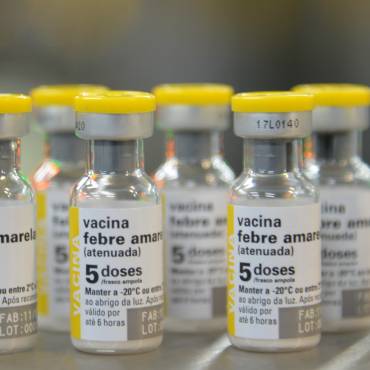Dengue fever vaccine may actually increase prevalence: Article suggests vaccinating LESS
Scientists caution that such dengue fever vaccines will probably cause temporary but significant spikes in the disease in the years after they are first used, according to a new report.
Although it might seem counter-intuitive, the first use of a vaccine can often lead to an increase in disease cases. This is the result of less-than-perfect vaccine protection and routine fluctuations in the populations of insects who carry the diseases. The argument has been pout forwards by Jan Medlock, an assistant professor in the Department of Biomedical Sciences at Oregon State University. To reach this conclusion, Medlock deployed mathematical modeling to examine the quirks of infectious disease transmission. The scenario put forwardsis that at the beginning of a vaccination program the administration will slow the numbers of children getting the disease, but only for a while. This is partly because a dengue vaccine will not provide total protection against infection. Following this, when the naturally fluctuating mosquito populations reach an unusually high level, a disproportionate number of children will become infected in a short period. A possible way to deal with this phenomenon, Medlock argues, is simply to vaccinate fewer people. This would cause higher numbers of people to get the disease in the long run but reduce the intensity of the spikes and the associated demands on a health care system.
Dengue Vaccine Causes Dengue in People Who Weren’t Infected
The first approved dengue vaccine has now been licensed in six countries. We propose that this live attenuated vaccine acts like a silent natural infection in priming or boosting host immunity. A transmission dynamic model incorporating this hypothesis fits recent clinical trial data well and predicts that vaccine effectiveness depends strongly on the age group vaccinated and local transmission intensity. Vaccination in low-transmission settings may increase the incidence of more severe “secondary-like” infection and, thus, the numbers hospitalized for dengue. In moderate transmission settings, we predict positive impacts overall but increased risks of hospitalization with dengue disease for individuals who are vaccinated when seronegative. However, in high-transmission settings, vaccination benefits both the whole population and seronegative recipients. Our analysis can help inform policy-makers evaluating this and other candidate dengue vaccines.
Source: Science 02 Sep 2016:
Vol. 353, Issue 6303, pp. 1033-1036
DOI: 10.1126/science.aaf9590


1 Comment
Hiya, I am really glad I’ve found this information. Today bloggers publish just about gossips and net and this is actually annoying. A good website with interesting content, this is what I need. Thanks for keeping this web site, I will be visiting it. Do you do newsletters? Cant find it.